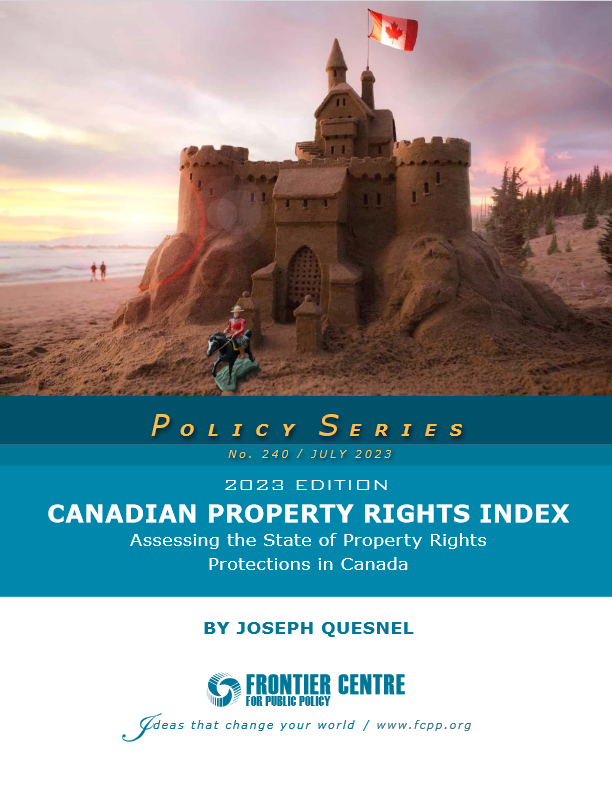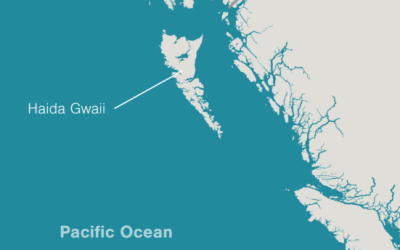EXECUTIVE SUMMARY
The Frontier Centre for Public Policy—a non-partisan think tank—is pleased to release its Canadian Property Rights Index on its tenth anniversary. We are re-assessing the state of property rights in Canada after our inaugural index back in 2013.
The Canadian Property Rights Index (CPRI) is a project designed to measure the level of property rights protections in Canada on a provincial and territorial level. Due to the importance of property rights to individuals and the economic well-being of a country, the Index is intended to provide a comprehensive measure of the protections that are currently in place. This updated version of the Index includes seven indicators: Land Title System, Expropriation, Regulatory Takings (‘downzoning’), Municipal Power of Entry, Civil Forfeiture, Endangered Species, and Heritage Property. The CPRI begins with a measure of the provinces’ and territories’ land title systems. It recognizes the superiority of Torrens systems over deeds systems and looks at the procedural safeguards in place to protect individuals’ land titles. Similarly, the CPRI considers the protections available when it comes to formal expropriation processes. Regulatory takings, which refer to laws that limit landowners’ ability to use their property and reduce their land values, are also evaluated in the Index. The Index also assesses the procedural safeguards in place for individuals when it comes to municipalities’ power of entry, civil forfeiture, endangered species, and heritage property. By measuring the property rights protections of the provinces and territories on these seven criteria, it allows for an easy comparison between jurisdictions. It provides a comprehensive view of the current level of protection so that governments, individuals, and organizations can act to ensure that each jurisdiction is providing sufficient protections for its citizens.
Property rights are essential for economic freedom, but in Canada, some provinces and territories often lack the protections that are necessary for the proper safeguarding of rights. The revision reveals a distinct east-west dimension in the results, with the provinces from the West dominating the rankings. Even though Nova Scotia scored second, the Atlantic provinces remain at the bottom of the index. The solution to this issue lies in the need for a commitment to limited government and a more informed and vigilant public who demands better protections of their rights. Policy recommendations proposed include the enshrinement of property rights in the Canadian constitution, measures to control regulatory takings, and establishing an organization devoted to property rights monitoring, education, and protection. If implemented, these recommendations can go a long way to increase economic freedom and prosperity for Canadians.
Read the complete version on PDF here: FC-PS240_CPRI_JL1323_F2
Read the media release here.
Read the backgrounder here.
Joseph Quesnel is a senior research associate for the Frontier Centre for Public Policy.



